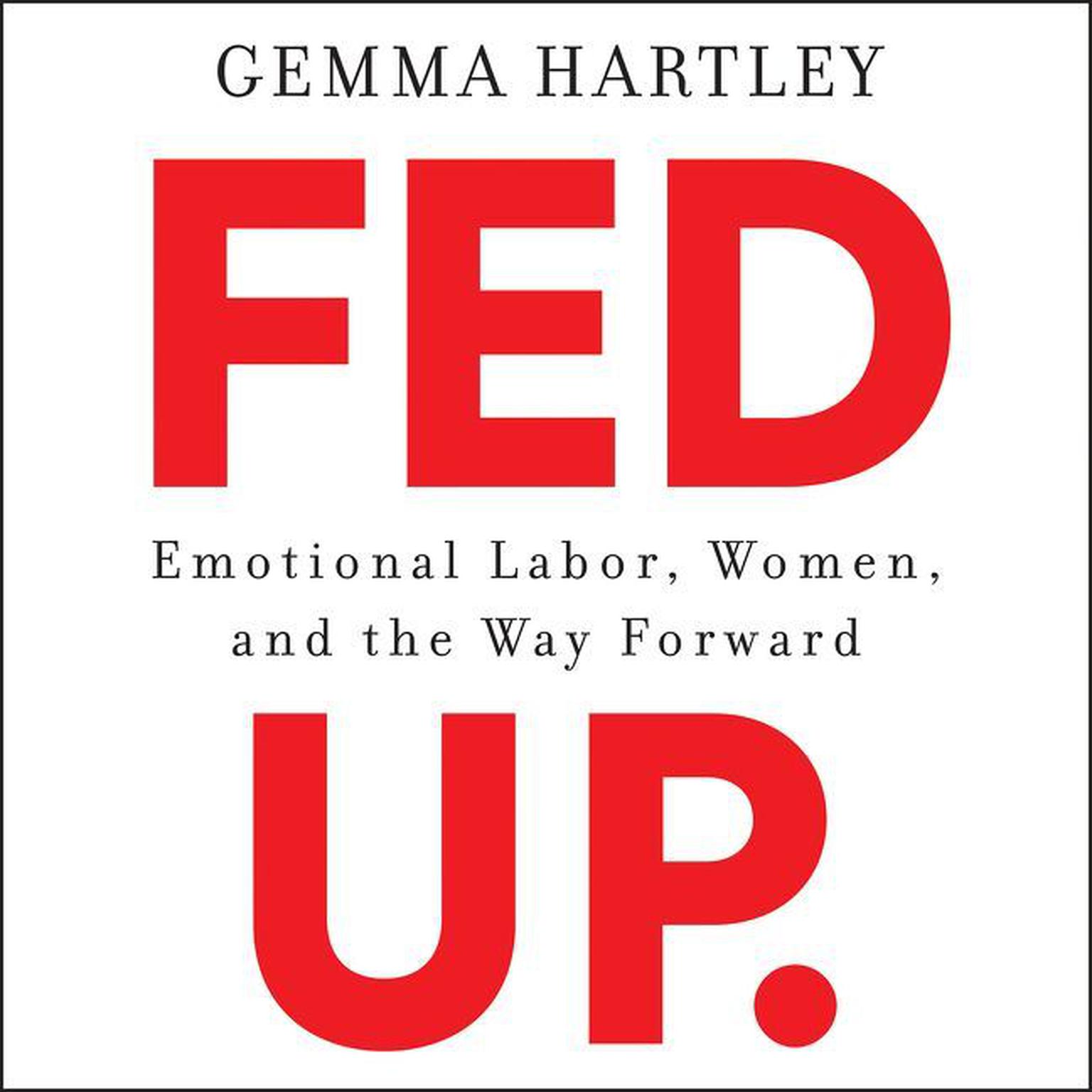 Play Audiobook Sample
Play Audiobook Sample
Fed Up: Emotional Labor, Women, and the Way Forward Audiobook
 Play Audiobook Sample
Play Audiobook Sample
Quick Stats About this Audiobook
Total Audiobook Chapters:
Longest Chapter Length:
Shortest Chapter Length:
Average Chapter Length:
Audiobooks by this Author:
Publisher Description
A rousing call to arms, packed with surprising insights, that explores how carrying ""the mental load""—the thankless day-to-day anticipating of needs and solving of problems large and small—is adversely affecting women’s lives and feeding gender inequality, and shows the way forward for better balancing our lives.
Launching a heated national conversation with her viral article ""Women Aren’t Nags; We’re Just Fed Up""—viewed over two billion times—journalist Gemma Hartley gave voice to the frustration and anger of countless women putting in the hidden, underappreciated, and absolutely draining mental work that consists of keeping everyone in their lives comfortable and happy. Bringing long overdue awareness to the daunting reality of emotional labor in our lives, Hartley defines the largely invisible but demanding, time-consuming, and exhausting ""worry work"" that falls disproportionately and unfairly on all women—no matter their economic class or level of education.
Synthesizing a wide variety of sources—history, sociology, economics, psychology, philosophy, and anthropology—Hartley makes the invisible visible, unveiling the surprising shapes emotional labor takes at work, at home, in relationships, and in parenting. With on-the-ground reporting, identifiable personal stories and interviews from around the world, this feminist manifesto will empower women to transform their inner dialogue and give all women the emotional fortitude and courage to ask for what we most want—without shame, without guilt, and without the emotional baggage.
Beyond naming the problem, Fed Up offers practical advice and solutions for teaching both men and women how to wield emotional labor to live more full and satisfying lives. Hartley helps us to see emotional labor not as a problem to be overcome, but as a genderless virtue we can all learn to channel in our quest to make a better, more egalitarian world for ourselves and most importantly, our children. Insightful, surprising, deeply relatable, and filled with all too familiar moments, this provocative, intelligent, and empathetic guide is essential reading for every woman who has had enough with feeling fed up.
Download and start listening now!
“Narrator Thérèse Plummer’s conversational tone immediately engages the listener and makes Hartley’s thought-provoking observations more accessible. The brisk yet comfortable pace Plummer sets moves the text along smartly while allowing listeners time for reflection. Variations in tone and volume for quotes and emphasis prove effective without interrupting the smooth flow of her presentation. Her soft delivery of Hartley’s shared personal episodes lends intimacy and immediacy, and the trace of a smile in her voice lends humor to the occasional caustic aside. Plummer’s skillful narration of Hartley’s thoughtful treatise on true equality for the sexes will find wide appeal for the serious listener.”
— AudioFile
Quotes
-
“A passionate and personal assessment of the nature and costs to women of ‘emotion management and life management combined’…There is much here likely to engage, comfort, and possibly help women who share Hartley’s fed-up feelings.”
— Publishers Weekly -
“Female readers will undoubtedly relate to the many first-person anecdotes of women obliviously or resentfully doing the draining work of emotional labor. But this is a book for men, too. To break the cycle, men need to step up to the plate. And then put it in the dishwasher.”
— Booklist
Fed Up Listener Reviews
Be the first to write a review about this audiobook!
About Gemma Hartley
Gemma Hartley is a journalist and writer whose work has appeared in Glamour, Women’s Health, Cosmopolitan, Redbook, Good Housekeeping, Harper’s Bazaar, Huffington Post, and the Washington Post, among other outlets. She lives in Reno, Nevada, with her husband and three children.
About Thérèse Plummer
Thérèse Plummer is an actor, award-winning voice-over artist, and counselor. She has won eighteen AudioFile Earphones Awards and has been a finalist for the prestigious Audie Award for best narration. She has appeared in a variety of television and film roles. As a counselor for adolescents, she spent five years using drama therapy techniques in individual and group settings.


